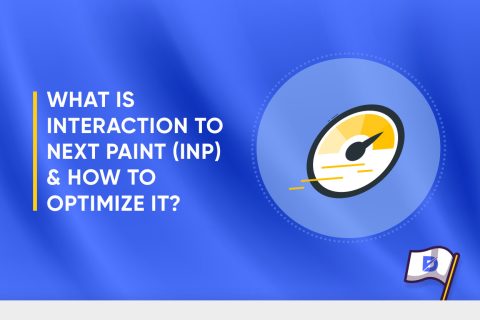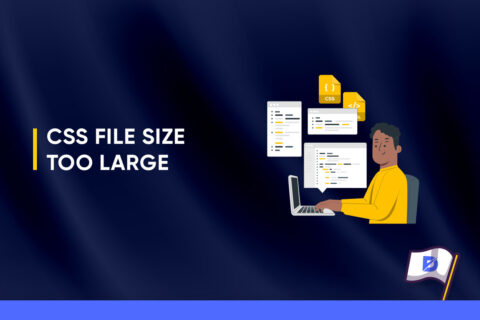With the development of technology, SEO continues to evolve. Every day, we encounter a new dynamic that is included in the search engine optimization process. One of these new changes is NLP. In this article, I will try to explain what it is and how it is related to search engines and their evolving algorithms.
As you know, search engines make use of many algorithms while ranking relevant results for search queries. The process of optimizing a website for search engines is based on the selectivity of these algorithms. As a result of the development of tech, the methods that search engines use while building their algorithms are also developing. This evolution of algorithms naturally changes SEO dynamics, sometimes deeply and sometimes superficially. Today, we will explain one of these changes, NLP, for you. So, let’s start with the simplest question first.
What is NLP?
NLP stands for Natural Language Processing. Google announced it last year. So, what does NLP mean? Does NLP affect SEO? Calm down. We will explain the answers to all of them. First, it is a change in Google’s algorithm in parallel with the issue we have mentioned above. Therefore, this change directly affects SEO. That is the simple definition of NLP. If we dig deeper into it, we realize that NLP aims to understand the context of Google searches. So, compared to the past, it does more than just consider keywords while evaluating the context of searches. As we dig deeper, we’ll all start to realize how NLP has impacted SEO fundamentally. So, are you ready to go down the rabbit hole?
If you don’t follow tech closely, I’m sure you haven’t heard of it before. You won’t believe it, but NLP is a subfield of linguistics. Understanding the communication between humans and computers is the main purpose of this science. The biggest helpers of NLP in this process are AI and computing. It aims to understand the context of communication between humans and computers with the help of these elements. It also focuses on detecting the natural patterns that occur in this communication.
NLP is now vital for any website that aims to achieve higher rankings on the SERP screen. In fact, no matter how good your SEO is, you should now include NLP in your studies to maintain your website’s ranking. In order to better understand NLP, it is also essential to understand what BERT is.

What Is BERT, and How Is It Related to NLP?
BERT is Google’s most up-to-date NLP algorithm. Google launched BERT in 2019. It focuses on understanding how users will do their search queries. BERT is an open-sourced algorithm. It is also neural-network-based. It is the biggest development in the entire tech world to understand the search intent better. There were many techs developed for this purpose before it. However, there are many advanced features that set BERT apart from them. The most basic of these differences is that it is bi-directionality. This feature provides important advantages to BERT. That gives it a great advantage in understanding the meaning of phrases in the search query. Because it makes sense of the search term according to the words or searches phrases, both before and after it.
So, BERT doesn’t rank search results only based on the words in the search query. It is also based on the context in which users use the words in the search query. We can say that the search for context in search queries is the basis of its success. One of the advantages of BERT over previous algorithms is in prepositions. Thanks to its success in detecting the context in the text, it also makes sense of prepositions correctly. So, what changes have occurred in SEO with BERT? In short, how did BERT affect SEO?
BERT & SEO
With BERT, SEO has come out of the narrow scope built around keywords. Because BERT was more concerned with the meaning of content built around keywords while ranking search results. In other words, it considers the sentences and paragraphs around keywords rather than the keywords themselves while ranking the results. It would be best to define BERT as an algorithm that values overall sentiment. We have a clear understanding of what BERT is. So, we can continue to delve deeper into NLP now.

How Google Considers NLP
While answering this question, it’s good to understand what Google expects from the NLP update and the evolution of the algorithm. Google expects this development to improve the quality of making sense of search queries.
Google is a search engine that is quite obsessed with user experience. This obsession is partly the main reason for its success in the search engine market. Now, every user, from young to old, behaves much smarter and more consciously in searches. In other words, they have a clearer view of the questions they want to find answers to today. However, they are just as impatient to find the answers they seek to these specific questions. That is exactly the most important factor that led to the birth of both BERT and NLP. Let’s deal with some statistics now.
1 in 6 search queries today is something users have never searched for before. Besides, on average, one out of every four users uses voice search. Users are more tend to use long-tail keywords in voice searches. That means users use long-tail keywords in almost 25% of searches. For these reasons, Google’s algorithm that ranks search results in many cases does not have enough historical data to predict search intent. It is precisely such situations that have revealed the necessity of better understanding the language of the search queries. Google aims to do exactly that with NLP.
I know many of you are wondering what makes this possible. What makes the science of language understanding of search engine algorithms possible? We said that as technology develops, algorithms evolve, and SEO changes. Therefore, it is machine learning that makes this possible. Machine learning has made possible the biggest leap in the history of this field.

NLP & SEO
NLP can be applied to content analysis as well as to a search query. However, NLP is most useful in search query analysis. For this reason, NLP has been at the center of all of Google’s recent major updates. Data is always the basis of every effective SEO study that can bring a website to success. So, how can you improve a website’s SEO by working with NLP?
For this, you must first have the necessary data to improve SEO with NLP. In order to have this data, you can use Google’s API demo. It is completely free. You can plug almost any text into it and study them for language comprehension. In this way, you can observe first-hand how Google analyzes the texts on your web page in terms of NLP. Then, you can compare these observations with the web pages ranked high in the SERP. Let’s now explain how NLP works for SEO. In this process, you will be able to understand the relationship between NLP and SEO more clearly.
Multiple Language Support
Using multiple languages on a website is one of the most important NLP dynamics affecting SEO. Google is much more skilled at understanding the content on these websites. As such, you will no longer have to deal with developing transcriptions for your content on your website. Thus, you can focus your time on developing higher-quality content.
Syntax Analysis
One of the areas where NLP is most successful is to determine the quality of the content. For this, it evaluates them in terms of syntax, context, and grammar. For this reason, while creating your content, you should do more than just build them on keywords. You should also pay attention to context, syntax, and grammar.
Content Categorization
NLP’s success in understanding the context of the contents also helps to classify them. So, you no longer have to spend so much effort to highlight what your content is about.
Sentiment Analysis
NLP can also do sentiment analysis by understanding the feel of the content. For example, it can successfully detect whether content has a negative or positive tone. In this context, with NLP, content producers have to think more about connecting with the target audience. Undoubtedly, it is inevitable that content with sentimental connection will get better rankings.
Entity Recognition
Thanks to NLP, the algorithm that ranks the search results can also evaluate every element on a web page for compliance. For example, it can understand whether the images on a web page are compatible with the content now. Or, it can also evaluate whether the images are compatible with the alt text. Web pages with this compatibility have a great priority in rankings along with NLP. In other words, the entity recognition feature may understand the context of images and videos independently of the alt text. So, what does this mean for SEO? No matter how beautiful they are, it will no longer be useful to use visuals that are incompatible with the context. So, we can say that using visuals related to the content of your web page is now more important in terms of SEO.
How NLP Affected Backlinks
Backlinks are one of the most important dynamics that determine the authority of a website. With the NLP update, the importance of backlinks has reached a whole new dimension. Now both external and internal backlinks mean much more than relevance and authority. As with NLP’s focus, Google now considers both internal and external backlinks to be relevant to the context of the web page. In other words, with this update, the link structure and placement have become a more important dynamic than before. Placing random backlinks on web pages makes no sense anymore. Backlinks must have a value that makes sense in the context of the web page. Briefly, for backlinks to be of value, their content must be compatible with the content of the page that has the backlink. With this update, Google is making sure that backlinks improve the reader’s experience.

Best NLP Tools
Berkeley Neural Parser
It has support for more than 11 languages. It has AI-based models for these languages. This tool breaks down the syntactic build of sentences into sub phrases. Thus, it aims to understand the language that users use while searching. The most prominent feature of the tool is its success in parsing complex sentences. The learning curve required to start using the tool effectively is also quite low. In other words, an inexperienced user can get efficiency from it as soon as they start using it.

IBM Watson
The IBM Watson tool is also AI-based. One of the most prominent features of the tool is that it offers cloud-supported use. The most effective service of the tool is NLU, which is part of NLP. The tool can recognize text categories, keywords, sentiment, syntax, and sentence structure with near-perfect success. The feature that makes IBM Watson the most popular tool in its field is that it is customizable for many industries.

Gensim
Gensim is an algorithm-based tool. It uses two basic dynamics to interpret the language that users use. These dynamics are the aggregation of linguistic data and memory optimization. Python packages enable multiple language-based analyses.
NLP & SEO, In Short
As you know, SEO means a lot to the success of websites. So, it is imperative to closely follow the innovations in SEO to keep up with the ever-developing algorithm of Google. One of the developments that brought the biggest innovation to SEO is NLP. In this article, we have tried to explain to you what Google Natural Language Processing is. We have touched on how the NLP engine changed the understanding of SEO. Then, we talked about what NLP benefits the most. Finally, we have shared a few effective tips that may help you optimize your websites for NLP search.
You may also want to read our What Are N-grams? article.
Frequently Asked Questions About
These metrics are salience, entity, and category.
Google offers the Google API Demo for free to help users with this.
It uses AI, machine learning, and computing.
According to NLP, there are four types of search intent. These are navigational, informational, commercial, and transactional.
It calculates TF by considering three basics. First is the raw count of instances of a keyword. Second is the raw frequency of the most common word. Finally, third is the raw count adjusted for document length.





No comments to show.